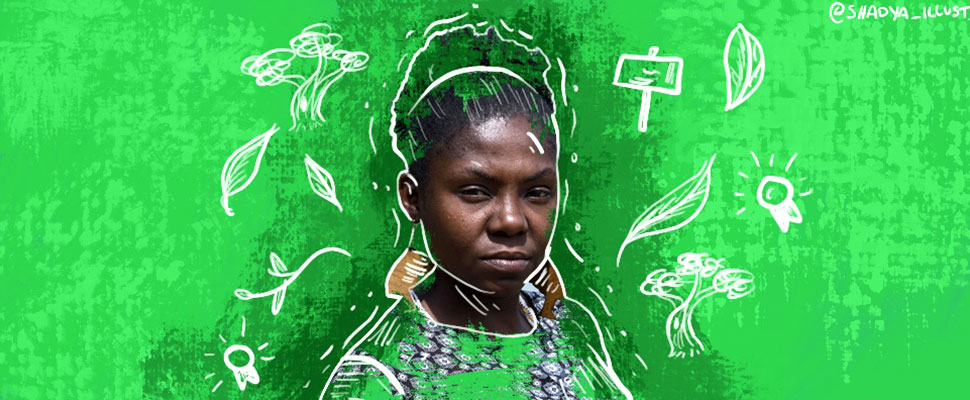“We have to keep walking and carry on”, Francia Márquez
The Colombian activist spoke with LatinAmerican Post about the environment, the peace agreements, and the current situation of social leaders

Francia Márquez is an Afro-descendant activist from Colombia who has defended different environmental causes and the rights of women. Her work was recognized with the Goldman Prize, known as the 'Nobel of the environment', but it has also brought her threatens. However, Márquez is a fighter who does not give up in the face of adversity. Despite the death threats she has received, and the murder of social leaders, Márquez continues her defense of the environment and the territory. According to El Tiempo, "thanks to her work, today the rivers [in Colombia] are less poisoned and the forest less fractured by the exploitation of new deposits".
Leer en español: Entrevista exclusiva con Francia Márquez: “nos toca seguir caminando y echando pa’ delante”
LatinAmerican Post spoke with the leader to talk about different topics such as the environment, peace agreements, and the current situation of social leaders in the country.
LatinAmerican Post (LAP): In your work as an activist and leader, what has it meant to be the winner of the Goldman Prize?
Francia Márquez (FM): Well, I think that, on the one hand, it is an acknowledgment of the collective struggle we have carried out as an Afro-descendant, indigenous, and peasant community. It is a recognition of the struggle for the territory and I think it is a tribute to the leaders who have died and who are still dying because of violence. So, I think there are many mixed feelings. On the one hand, it is good because they are acknowledging what we do; but, for other moments, like these in which Colombia is today, where every day they are killing leaders, it is, well, sad.
LAP: What do you think is the cause for murdering social leaders?
FM: It obeys to a systematic situation. If you look, many of these leaders who (…) who are fighting, who have been defenders of life, have been defenders of the environment, have defended their ethnic and territorial rights, have been addressing issues of mega-projects. They are also leaders who have been betting on a peace process, yes? So, in some way, this has to do with (…) with let's say blind the possibilities of making a different path for our country. I believe that, as the National Prosecutor has said, this is systematic, but impunity is also systematic, with which these acts of violence and murder are being treated, it is a genocide that is being committed against the communities and their leaders
LAP: Francia, what is your biggest concern regarding peace agreements with the incoming government?
FM: I think that this incoming government has publicly said that they are going to turn these agreements IGNORE INTO pieces because they do not agree with them. In other words, there have been governments and economic sectors in this country that are interested in having a guerrilla group to be able to justify the violence also in the territories.
Also read: The environmentalist who triumphed after dying
For me, the fact that these peace agreements are not complied with, that these peace agreements are destroyed, will mean the intensification of the war in the territories and who already have already experienced all that violence will be affected, because we are going to return to the previous situation and that is what we are observing. We are observing that they have begun to stigmatize the murders of leaders. It seems to me that it is very serious that high-level public officials, ministers, begin to justify it, let's say, as an apology to crime. Those of us who have lived through the war in those territories want to live in peace, we are tired of violence, we are tired of death, we do not want to have more dead people.
LAP: Have you considered stopping fighting for this country, for the communities you defend?
FM: No, of course not. We, all our lives, have had to fight. In my condition of being a woman of African descent, the memory that I have is that the rights that we have today have cost the community dead. So, in spite of the circumstances of all that it implies, it is necessary to be very careful, but we cannot abandon the struggle.
LatinAmerican Post | Marcela Peñaloza
Translated from “Entrevista exclusiva con Francia Márquez: “nos toca seguir caminando y echando pa’ delante””





